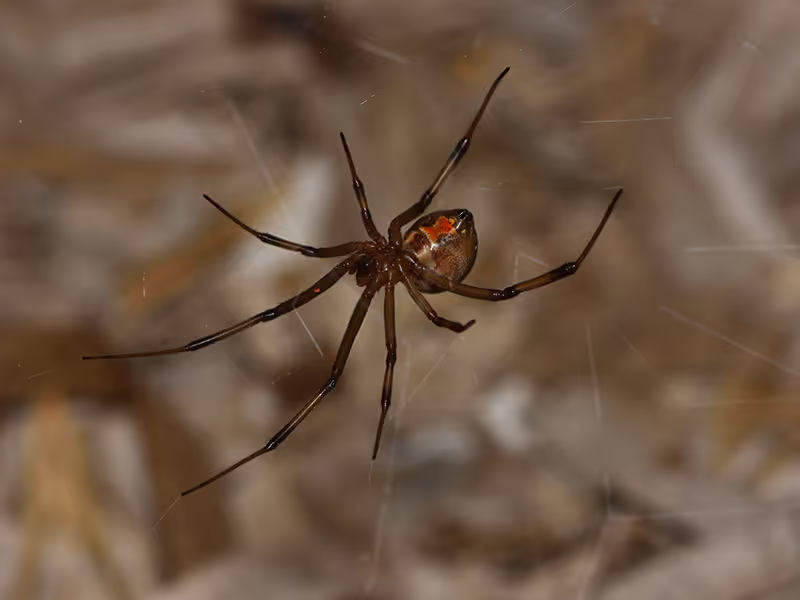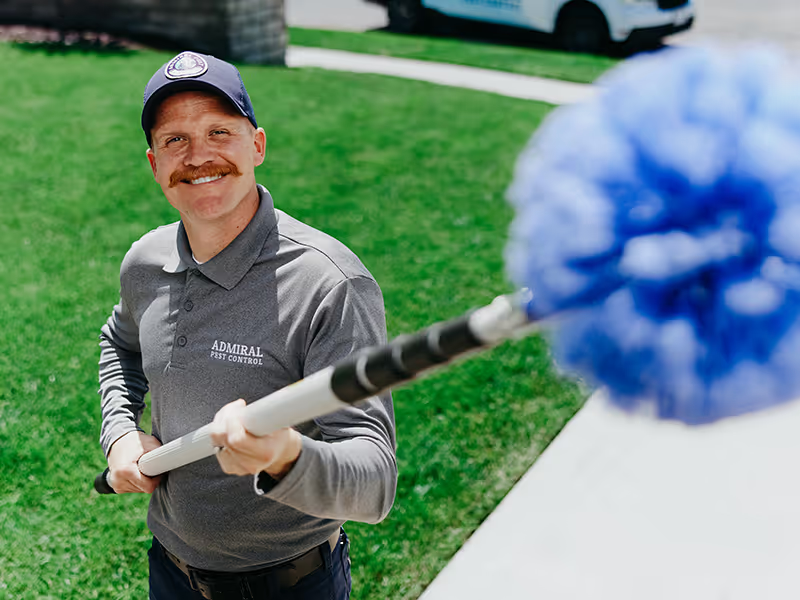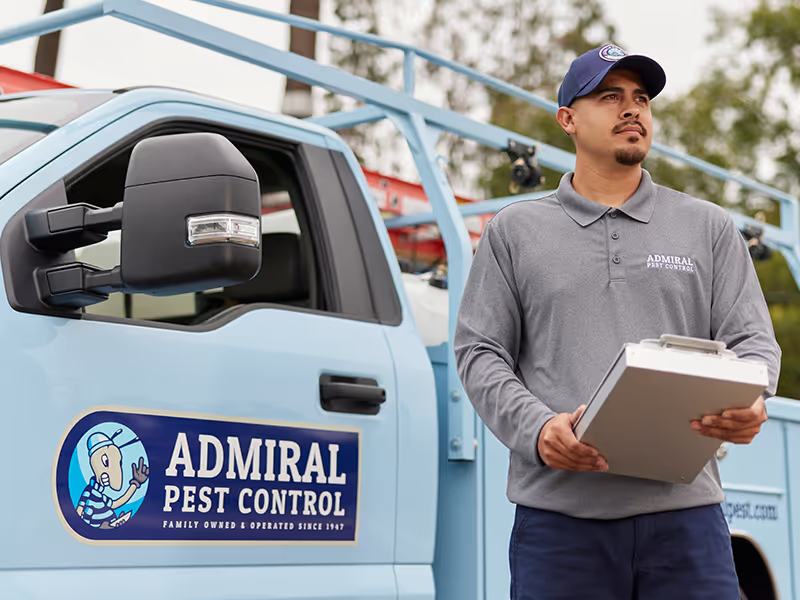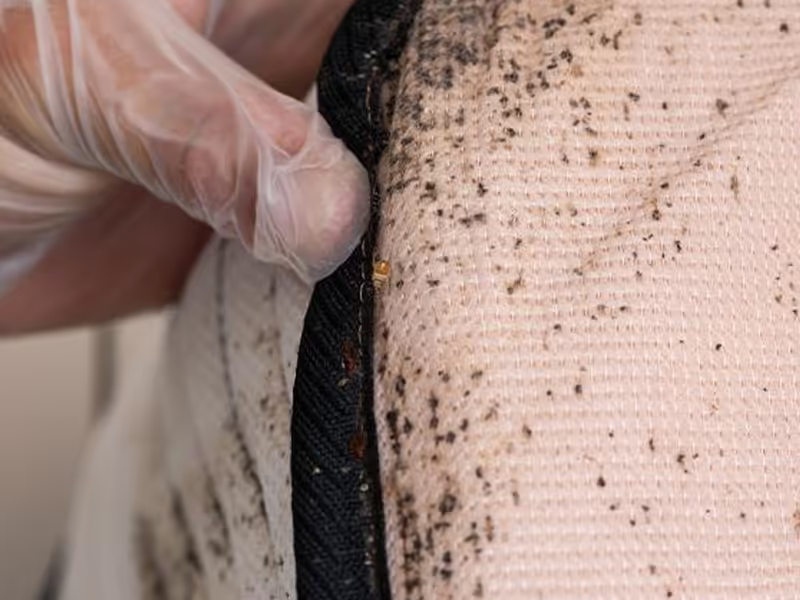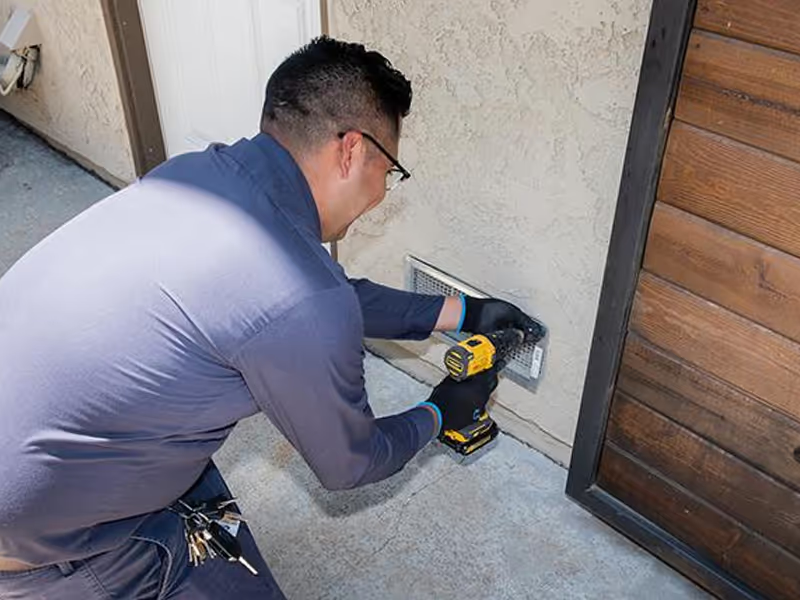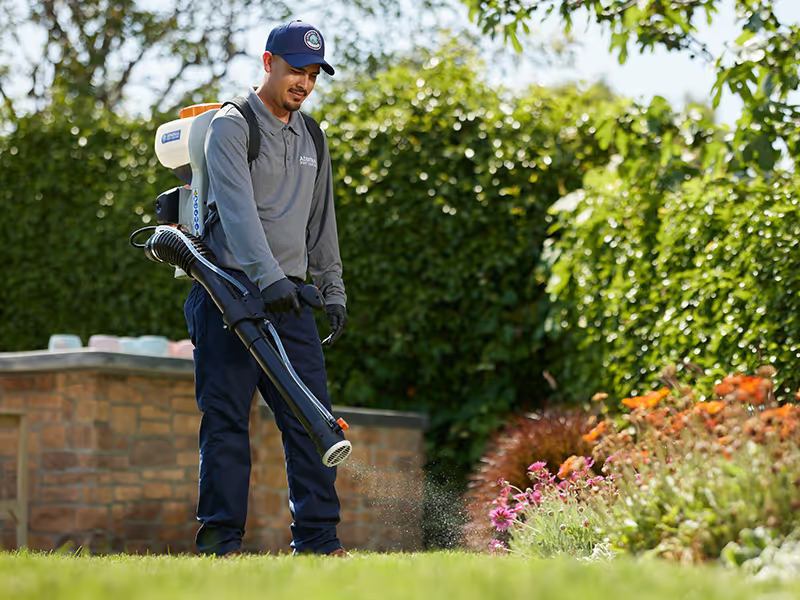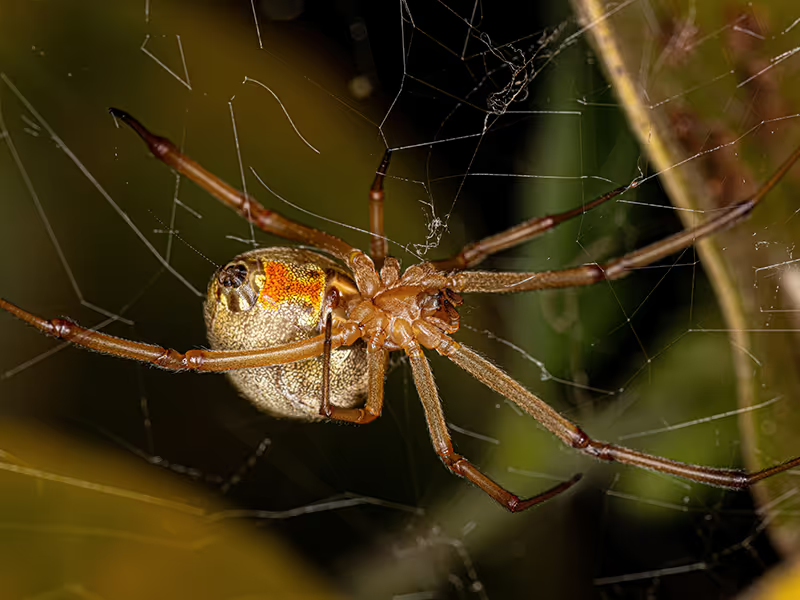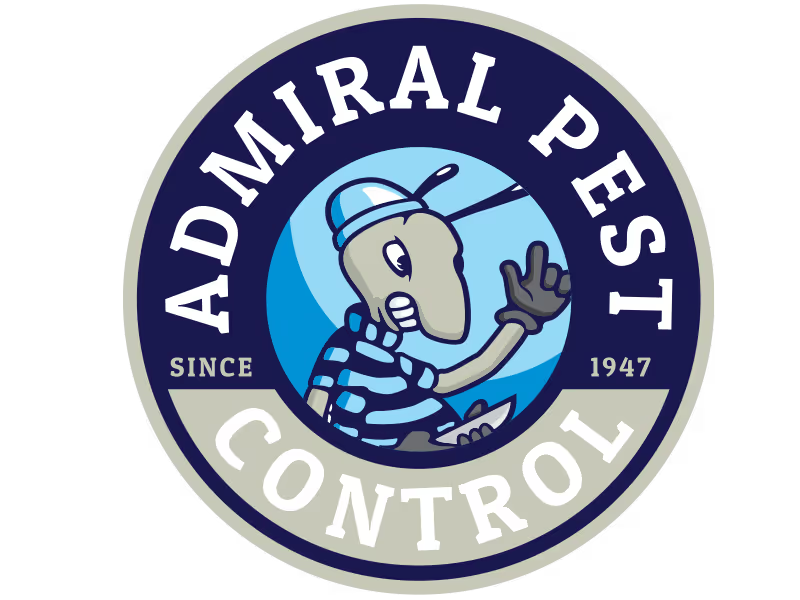Identifying a brown widow spider is the first step in managing them. Here’s what to look for:
1. Body Color and Size:
- Brown widows are typically light to dark brown, with some black markings.
- They are slightly smaller than black widows, measuring about half an inch in body length.
2. Hourglass Marking:
- Like black widows, brown widows have an hourglass-shaped marking on their abdomen.
- This marking is usually orange or yellow, which helps distinguish them from the red hourglass of a black widow.
3. Egg Sacs:
- Brown widow egg sacs are spiky and round, resembling a tiny sea urchin.
- These unique egg sacs are often found near webbing and are a strong sign of their presence.
4. Webs:
- Their webs are irregular and sticky, often located in hidden or undisturbed areas.
How Common Is the Brown Widow in California?
Brown widows are becoming increasingly common in California. Originally from South Africa, they have spread to many parts of the United States, especially in warm climates like California.
Key Facts:
- Brown widows thrive in Southern California due to the warm weather and urban environments.
- They are more likely to be found outdoors than indoors, often in areas like gardens, patios, and under outdoor furniture.
- While they can bite, their venom is less potent than that of black widows.
Where You Might See Them:
- Under eaves, railings, or mailboxes.
- Inside outdoor equipment like grills or gardening tools.
- In cluttered areas like garages and storage sheds.
Signs of a Brown Widow Infestation
Knowing the signs of an infestation can help you address the problem early. Look for these indicators:
1. Webs:
- Irregular, messy webs in corners, crevices, or sheltered outdoor spots.
- Sticky threads that are hard to remove.
2. Egg Sacs:
- Spiky, cream-colored egg sacs attached to webbing.
- Each sac can contain up to 150 eggs, leading to rapid spider population growth.
3. Sightings of Spiders:
- Spotting adult brown widows in or around your home is a clear sign.
- Pay attention to areas where they tend to hide, such as under furniture, in dark corners, or around garden tools.
4. Increase in Other Pest Activity:
- Since spiders feed on insects, an increase in pests like flies or ants could attract more brown widows.
How to Get Rid of Brown Widows
Getting rid of brown widows involves a combination of cleaning, prevention, and, if necessary, professional pest control. Follow these steps to manage the problem:
1. Remove Webs and Egg Sacs:
- Use a broom, vacuum, or stick to sweep away webs and egg sacs.
- Dispose of them in a sealed bag to prevent eggs from hatching.
2. Reduce Clutter:
- Clear out clutter in garages, sheds, and storage areas.
- Store items in sealed plastic containers instead of cardboard boxes.
3. Eliminate Hiding Spots:
- Trim plants and bushes near your home’s foundation.
- Remove debris like wood piles, bricks, or stones where spiders can hide.
4. Seal Entry Points:
- Inspect your home for cracks, gaps, or holes where spiders could enter.
- Use caulk or weather stripping to seal these openings.
5. Use Natural Repellents:
- Spray a mixture of water and essential oils like peppermint, tea tree, or citrus in areas where spiders are likely to hide.
- Vinegar mixed with water can also deter spiders.
6. Apply Insecticides:
- Use spider-specific insecticides in areas with high activity.
- Follow the instructions carefully to ensure safe and effective use.
7. Set Sticky Traps:
- Place sticky traps in corners, along walls, or other areas where spiders might roam.
- These traps can capture not only brown widows but also other pests.
Contact Admiral Pest Control
If the infestation is severe or if DIY methods aren’t working, it’s time to call in professionals. Admiral Pest Control has the expertise and tools needed to eliminate brown widows effectively.
Why Choose Admiral Pest Control?
- Experience: Admiral Pest Control has been helping California residents manage pests for decades.
- Safe Solutions: We use methods that are safe for your family, pets, and the environment.
- Comprehensive Service: From inspection to extermination, we provide complete pest control solutions.
How to Get Started:
- Contact Admiral Pest Control for a consultation.
- Schedule an inspection to assess the extent of the infestation.
- Let our team create a customized treatment plan to rid your home of brown widows.
Final Thoughts
Brown widows may not be as dangerous as black widows, but they’re still pests you don’t want hanging around. By identifying them, cleaning up their webs, and taking preventive measures, you can keep your home spider-free. If you need help, Admiral Pest Control is just a call away, ready to handle the job with professionalism and care.

